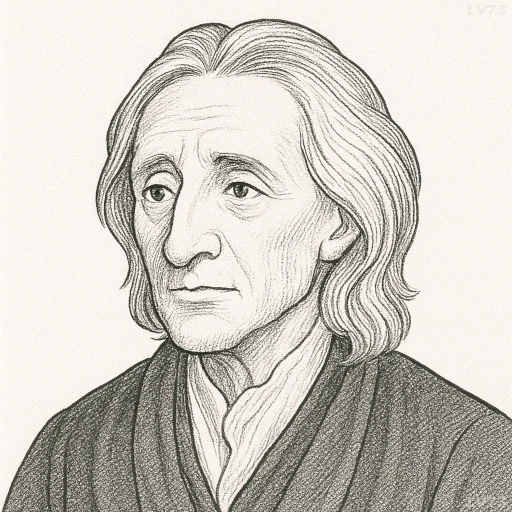“The Bible is one of the greatest blessings bestowed by God on the children of men. It has God for its author; salvation for its end, and truth without any mixture for its matter. It is all pure.”

- August 29, 1632 – October 28, 1704
- Born in England (UK)
- Philosopher and political thinker
table of contents
Quote
“The Bible is one of the greatest blessings bestowed by God on the children of men. It has God for its author; salvation for its end, and truth without any mixture for its matter. It is all pure.”
Explanation
In this quote, John Locke expresses his reverence for the Bible as a divine gift to humanity. Locke emphasizes that the Bible has God as its author, implying that it is divinely inspired and contains absolute truths. He also highlights that the ultimate purpose of the Bible is salvation, positioning it as a guide to spiritual enlightenment and eternal life. For Locke, the truth in the Bible is unblemished and pure, meaning that it is free from human corruption or error. This reflects Locke’s belief in the moral and spiritual authority of the Bible, which he saw as a source of guidance for righteous living.
Locke’s deep respect for the Bible was part of his broader theological and philosophical framework, which sought to reconcile reason with faith. Although Locke is often associated with empiricism and a focus on human reason, he was also a devout Christian who believed that faith and reason could coexist harmoniously. During Locke’s time in the 17th century, England was experiencing religious conflict, and his ideas about the relationship between reason and religion were significant. Locke’s emphasis on the purity of the Bible was part of his broader argument for religious toleration, as he believed that the Bible was a universal source of moral truth that transcended sectarian divisions.
In modern contexts, Locke’s view of the Bible continues to shape discussions on religious authority and the role of scripture in guiding moral behavior. While Locke’s perspective on the Bible as a source of absolute truth may be shared by many faith-based communities, his emphasis on reason and individual interpretation also resonates in contemporary debates about the role of scripture in personal and public life. Locke’s ideas remind us that, for those who hold religious beliefs, the Bible is often seen as a source of moral clarity and spiritual truth, offering guidance that remains relevant despite the changing nature of human society.
Would you like to share your impressions or related stories about this quote in the comments section?



